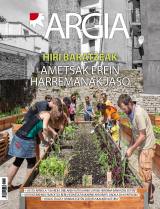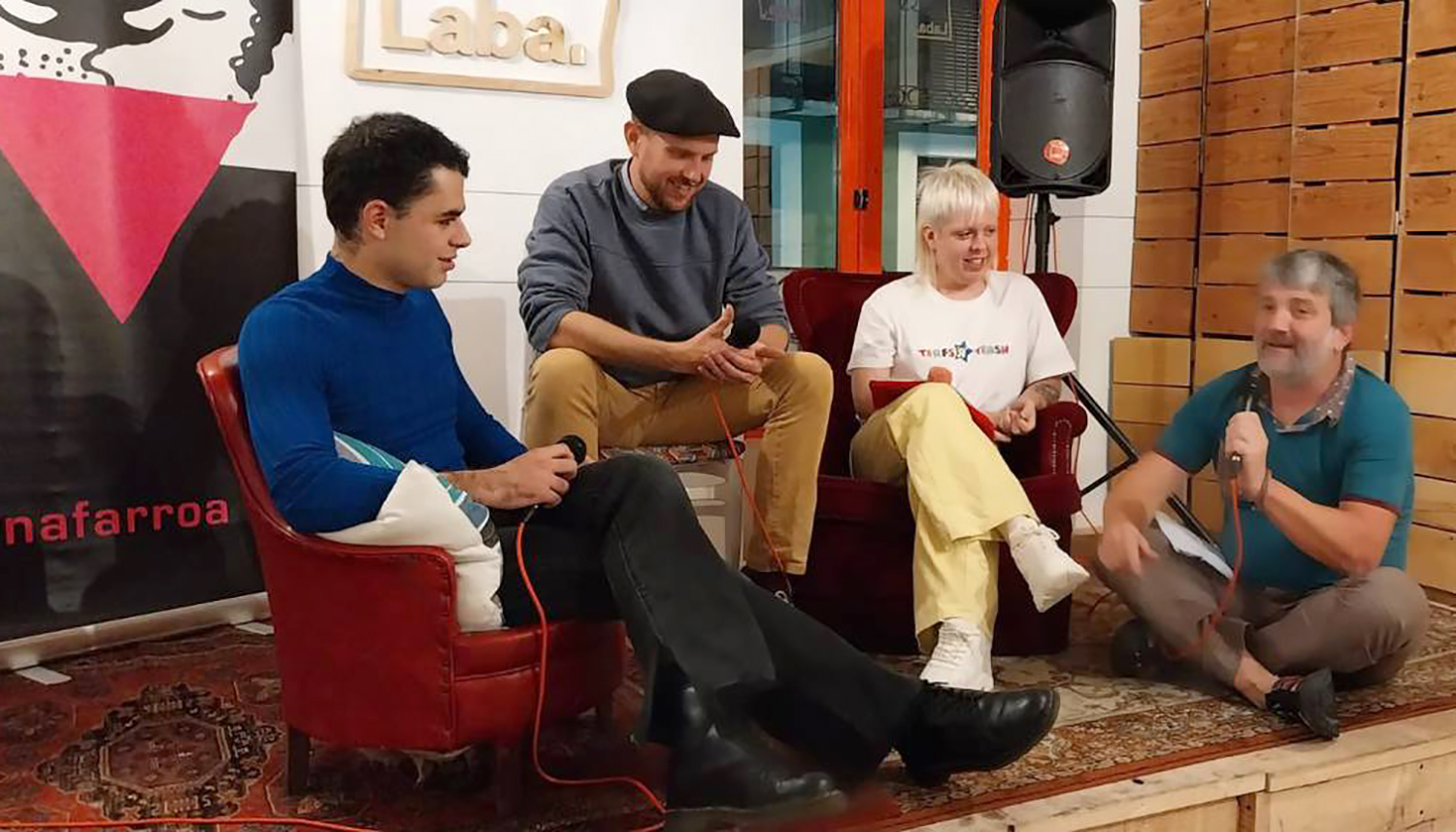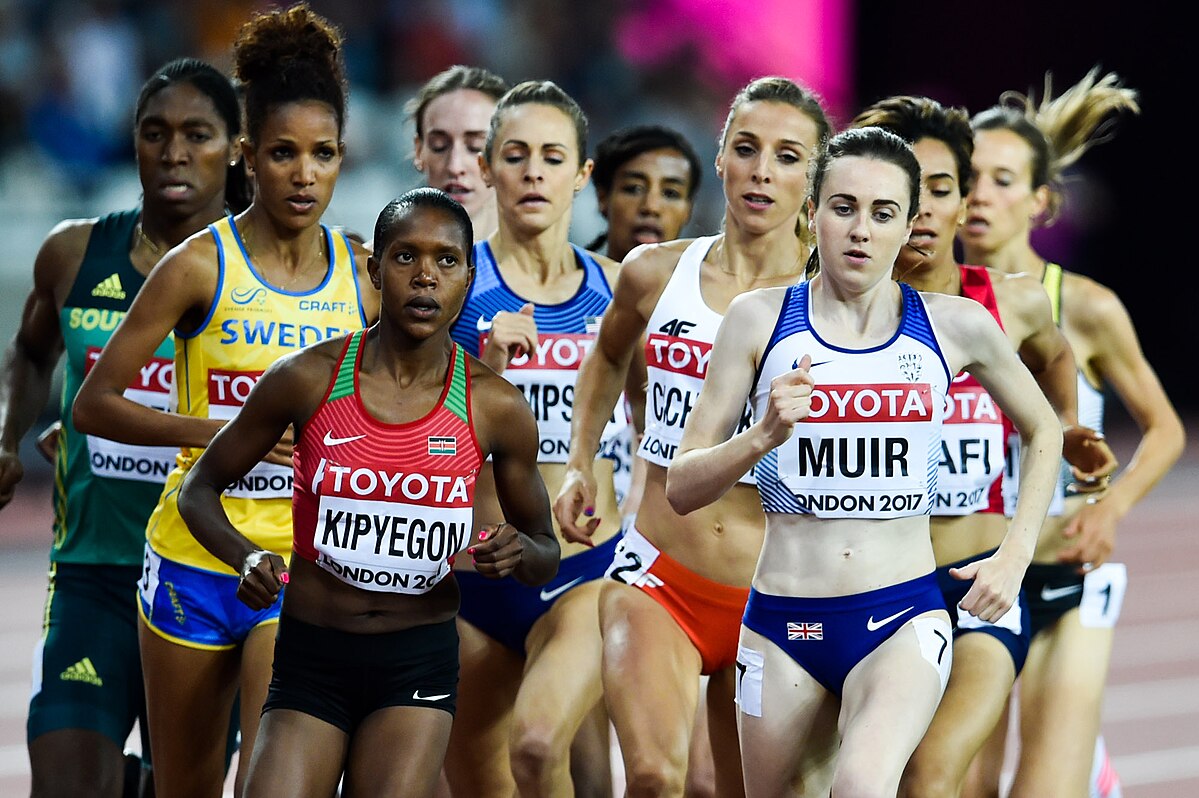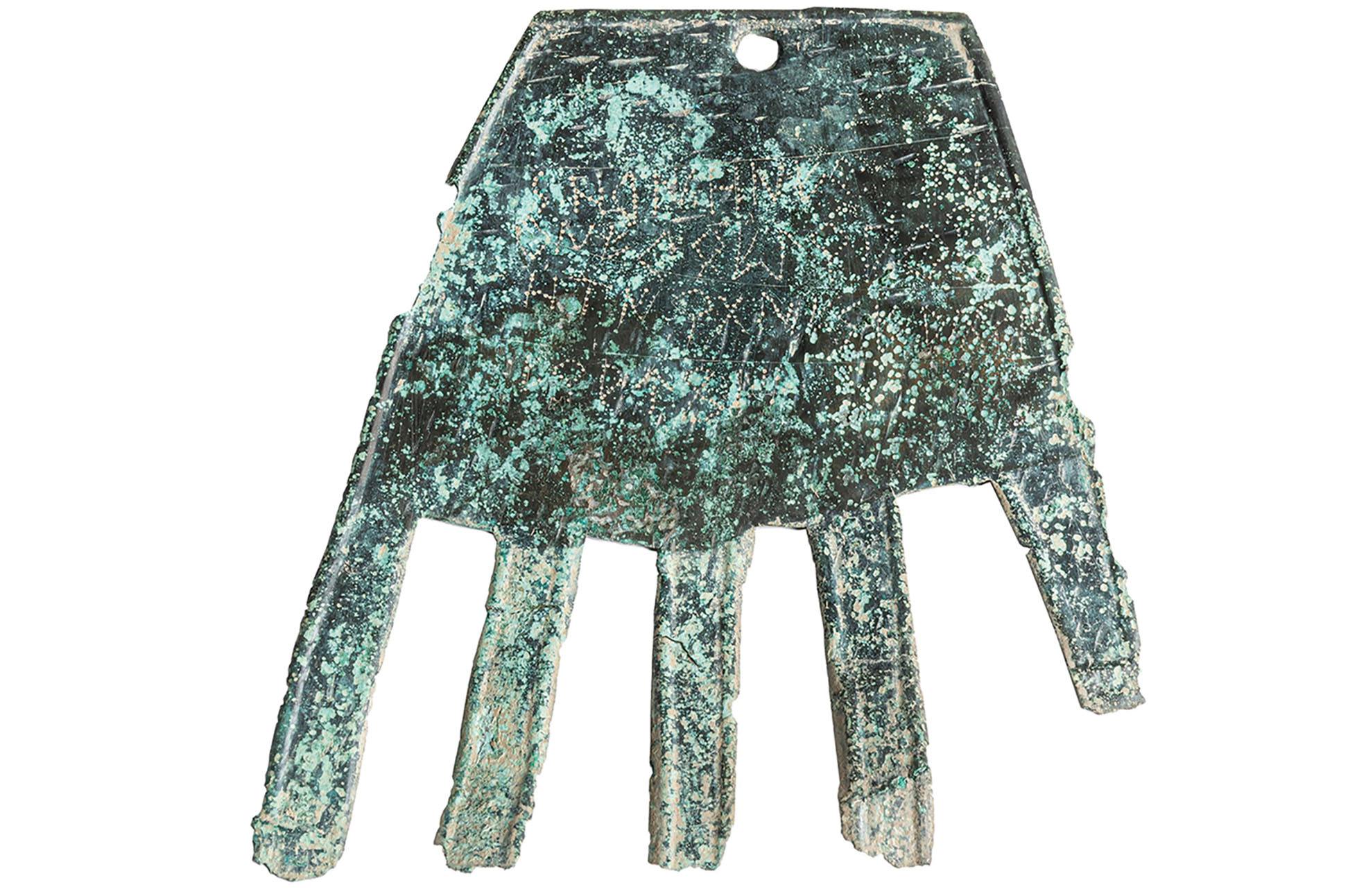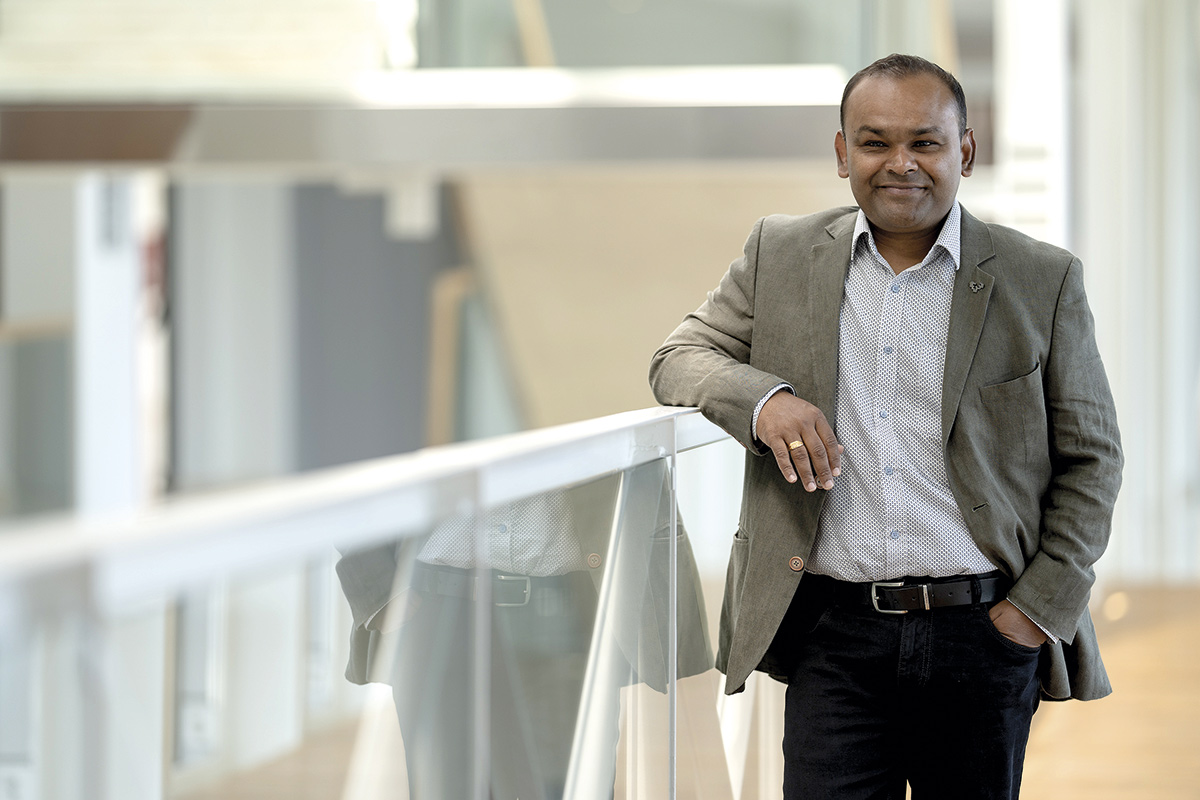"That there are so many words means that this people have not been cohesive."
- The linguist and professor Koldo Zuazo (Eibar, 1956) has just published the book Mendebeko euskara, a complete photograph of the dialect of Euskal Herria today. The new work includes the classification of subdialects and variants, as well as a small dictionary. It's a book to read and see, with 95 maps: for anyone who wants to know the peculiarities of the village to the village, it's a gem. This work is a milestone in the author's long trajectory, but it is not a goal, since the rest of the dialects await them.
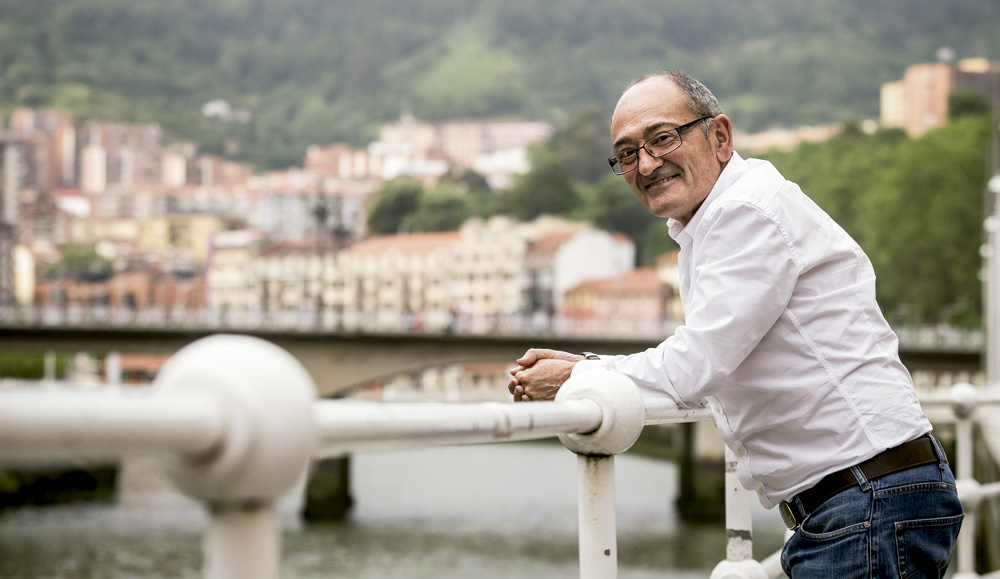
He began studying Western Basque in 1989, starting with Álava.
As I started working in Vitoria, I was curious. In addition, a political party, Unidad Alavesa, appeared. They said that the Basque language was not an indigenous language of Álava, but had taken from Gipuzkoa and Bizkaia. So I set out to investigate. At that time there were only three manuscripts and there was one very important person, Gerardo López de Gereñu. He collected the toponymy of all Álava and also introduced the words of all Álava into the dictionary Voices of Alavesas. From there I addressed Mondragon and Oñati, I was also in the Goierri and in the Burunda of Navarra. On the other hand, the Basque country in Bizkaia has always been mine, my parents are Biscayan, I have been living for some time in Bilbao. But the truth is that until I really knew Álava's, I didn't feel like looking at Bizkaia's. Then yes, I have been discovering the special language of Uribe Kosta, the language of Orozko is also interesting...
And the result of 28 years of work is in hand. Detailed description of the Basque in the West and its internal languages. There's something.
There's a lot of work behind this, yes. It's a job that you have to do very slowly, go to one site, then to another... It has been easier thanks to all the people who have helped me, many of them have been my disciples. They have tremendous will, without which you can't make a book like this. I would also like to mention the help of Nahia Grande, who has drawn the maps.
The title is the Western Basque. Is it more appropriate than to say Biscayan?
It must be borne in mind that many of the characteristics of this dialect are from all over the West. They are used in Bizkaia, but also in Álava, in the valley of the Sea... in some cases in the valley of the Urola and in Burunda. If I see in a dictionary that the sheet is Biscayan, I do not think it is accurate. The scope of this word is much wider than that of Bizkaia, the same with shoes, beans, etc. On the other hand, it is true that the Basque Country of Álava was already finished by the 16th century, almost dead. At the same time, great peoples have begun to be created in Bizkaia and it is seen that the Basque Country of Bizkaia took a personality. Some features are only given in Bizkaia, e.g. dinot, dinozu, etc.
It has always been said that the Basque country in the West is the most special, with a great personality. Does that have its bad side?
I think it is a bad sign that there is so much talk in this small Basque country. It means that this people have not been cohesive, after all we have no public institution covering the seven countries. In addition, it must be borne in mind that the Basque Country was not used in schools, even in writing.
Is the West so different from other dialects?
This statement has an objective aspect, yes. What happens is that many times people come to know the villages on the coast, like Ondarroa, Lekeitio or Bermeo, and those are the most special. They come and they don't understand anything. Obviously, if there were more days left, you would understand it. These are special languages, but not so much. When Álava was Euskaldun, I do not believe that there was such an interruption in the use of Euskera. The connection that Álava was making and now we lack that piece of the puzzle.
How do you see the future of words from village to village?
In Bizkaia quite badly. I am a supporter of the unified Basque country, I think that is the best thing we have done. But I do not believe that the way to introduce the unified Basque country was the right one. Some have identified it with a good Basque and what is not unified seems to be wrong. You say you have to be a pastor and you seem to have to be a pastor, and what is it about? In Navarre, in Gipuzkoa and in Álava, pastors have been mentioned for hundreds of years. One thing is that it has become the preferred pastor for the sum, but it does not mean that the other is wrong. I also see the opposite problem, that is, some use the dialect everywhere, as if they were at home, but on television or in front of a large audience we have to resort to the sum.
Today, it is easier to move from one people to another and the media is better. Will that affect the languages of the peoples?
Yes, the dialects are going to match up, and that's OK. But that draw has to be natural, and not because at the age of four at school you're told it's not Tuesday, it's Tuesday.
In 2017, the work that describes the characteristics of the Western dialect has been published. Are we Basques late in the task of knowing our dialects?
Yes, we are late. Bonaparte made the effort, but his goal was to map, without going into concrete features. For example, it used a single data to distinguish between the Gipuzkoan and the Biscayan, if dot or det is stated. We must applaud Bonaparte, but his descendants have been in vain. The languages of some peoples have been investigated, some works are very good, but there have been no studies from all over the West.
Why that vacuum?
Well, we've had a long dictatorship, and there hasn't been a university until recently. On the other hand, we have looked a lot at the past, either by toponymy, by surname or by the origin of the Basque country. If we have to move our language forward, the first thing is to know what we have now. I also feel complex, maybe we're looking at the 17th century, at Axular, at Leizarraga and at them, but we also have to address today's issues.
Until you updated the map of Bonaparte it was almost a century and a half. Will your maps last so many years?
The map of Bonaparte will always be a historical testament, I have not seen such a nice map in the world. What happens is that languages change and you have to take pictures of them from time to time. My maps are nothing more than a testament to how the Basque is at the beginning of the 21st century. How long will this last? Pretty little, now life is going more tightly. People tell me that I'm Bonaparte's enemy, and it's the opposite, because I see how difficult his job was. With all the resources of today, I have taken many years to make this book and Bonaparte made a magnificent map being born in London and Spanish, that is a great merit.
We are seeing more and more spelling errors in the writings of social networks, not only of young people, but also of the media. Some have become so common that they hardly hurt their eyes.
In this way, we can read in Spanish many things like: "You lose a dog," "It'll be that or k... [+]
Euskaltzaindia's motto is "ekin eta jarrai" ("ekin eta jarrai"), the outlawing of Euskaltzaindia. I don't know why the Academy wasn't outlawed, all three words appeared on its logo. The allegations have been made with less - and (those of one age remember the cassette of The Mondragon... [+]
Euskararen biziberritzea Ipar Euskal Herrian jardunaldia antolatzen du ostiral honetan Baionan Euskaltzaindiak. Euskararen alde egiten dena eta ez dena eztabaidatzeko mementoa izango da. Eragileak eta politikariak bilduko dira egun osoan.
In a one-hour commute to the workplace, I am accompanied by the car radio. On yesterday's journey, I had the opportunity to enjoy a short story program, as the last port of the road, full of curves, began in Karrantza. Short legends, yes, of few words, but stories of great... [+]









